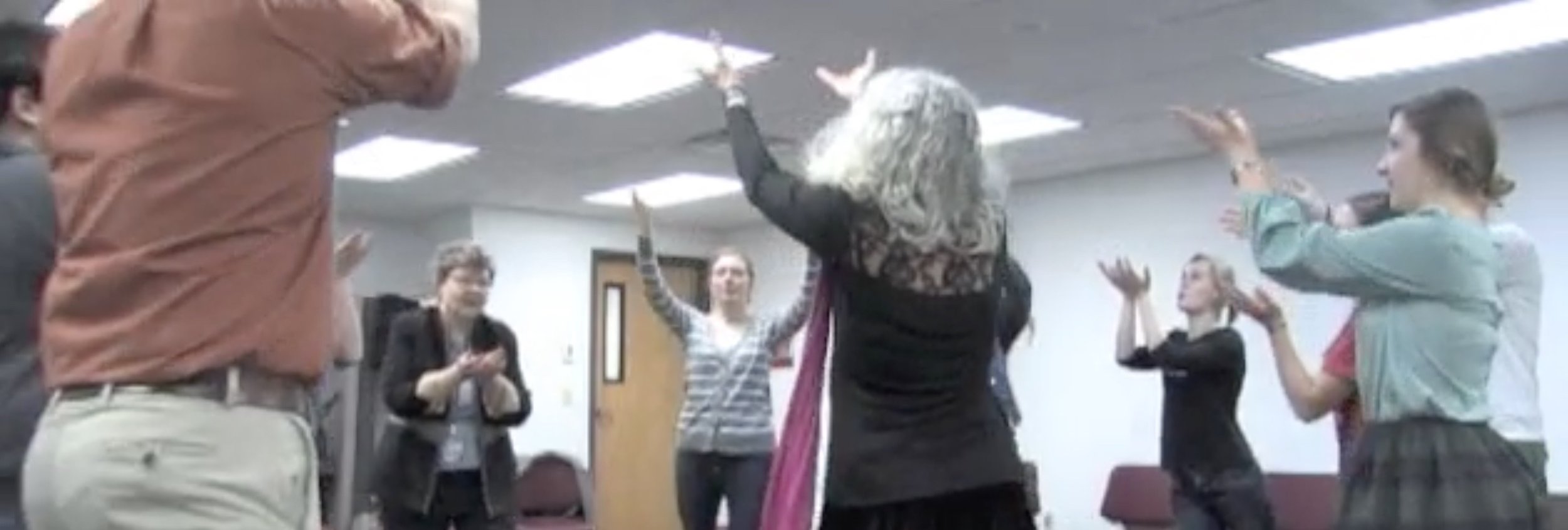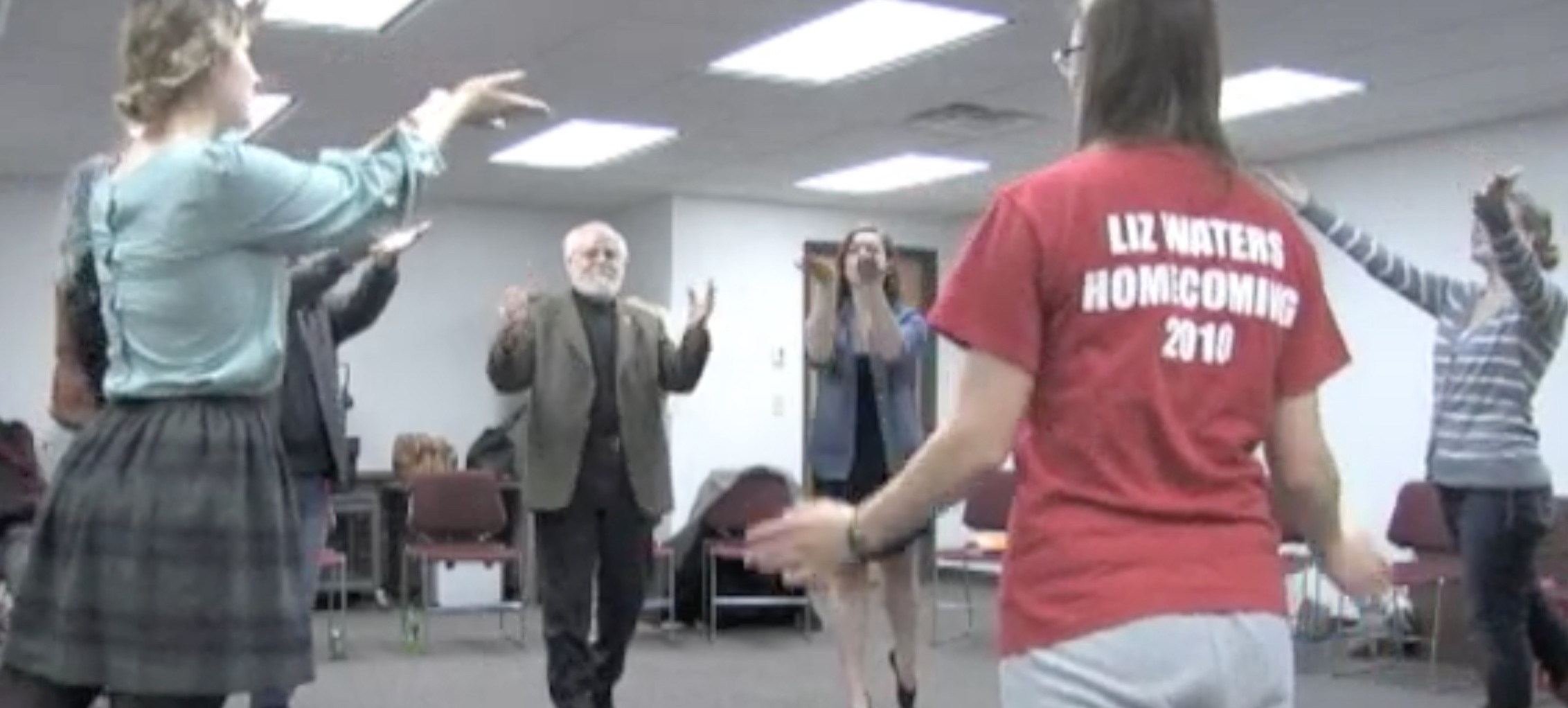Medical Humanities is an interdisciplinary field of medicine wHICH includes the humanities, social science and the arts and their application to medical education and practice.
Miller’s work with the Medical Humanities began in 1996 with The Nurses Project, a community-wide project “celebrate, honor and give voice to the nurses of Cape Ann, Massachusetts”. In 2015 working with the office of Career, Life and Service at Grinnell College, a partnership was built with Des Moines University, an osteopathic medical college. Applying methodologies adapted from her embodied practice as reflective tools work, students from Grinnell College joined Celeste with DMU faculty working with medical students. Workshops were facilitated to use embodied practices for medical students’ to reflect on the intersection of the acquisition of procedural skills with a conscientious attitude for professional identity development in moral, ethical and service considerations. A paper on this work was presented at the Health Humanities Consortium and Community Campus Partnerships for Health conferences. An article was published in Dancer-Citizen in fall 2017.
“Enhancing our wellness and resiliency as caregivers on one side, enhances how we better serve others.”
- Mark Pettus, MD FACP
Director Medical Education and Population Health - Berkshire Health Systems
Associate Dean of Medical Education - University of Massachusetts Medical School
National Endowment for The Arts Creativity Connects: Medicine in Motion
In the summer of 2018, Celeste began working with Jacob’s Pillow Dance Festival as the lead investigator to adapt the core curricular concepts of Jacobs Pillow Curriculum in Motion® for Medicine in Motion. Funded by the National Endowment for the Arts Creativity Connects. This partnership between Jacob’s Pillow Dance Festival, Berkshire Health Services, and Volunteers in Medicine examines how the arts, and dance in particular, can be used to address challenges and needs specific to the medical field. The project brings together JPCIM® Artist/Educators, medical practitioners, and administrators for a series of workshops and symposia to research how dance and the JPCIM® approach can improve the health and morale of employees, nurture creative problem-solving, and promote both individual and community flourishing.
I have presented on my work in this field at the following conferences:
Health Humanities Consortium, Cleveland Clinic, Cleveland, OH April 7-9, 2016 Paper: “Case Study Medical Humanities: The tools of Choreographic thinking in Medical Education”
Community-Campus Partnerships for Health (CCPH), May 11-14, 2016 ,New Orleans, Louisiana. Workshop: “Using Social Justice Theatre and Movement Exercises to In-Body, Understand, and Overcome Systems of Power and Oppression”
Health Humanities Consortium, UT Houston, Houston, TX March 9-11, 2017 Panel: “The Undeniability of the Body: The role of dance with both patients and medical practitioners” with Rachel Balaban and Julie Strandberg, Brown
University, Artist and Scientists as Partners Association of Directors of Medical Student Education in Psychiatry (ADMSEP), Santa Ana Pueblo, NM June 15-17, 2017 Poster: “Use of Story Circles Experience with Entering Medical Students” with Lisa Streyffler, Ph.D., Dept. Behavorial Medicine, Medical Humanities and Bioethics, Des Moines University.


